Reading the docs http://exist-db.org/exist/apps/doc/indexing.xml I'm finding difficult to understand how and if I can improve the performances of a 'read' query (with 2 parameters: a string and an integer). Do eXist-db have a default structural index? Can I improve a 2 params query with a 'range index'?
More details about my XML db (note there are 2 different dbs simply merged on the same root):
<?xml version="1.0" encoding="UTF-8" standalone="no"?>
<db>
<docs>
<doc>
<header>
<year>2001</year>
<number>1</number>
<type>O</type>
</header>
<metas>
<meta>
<number>26001</number>
<details>
<detail>
<description>legge</description>
<number>19</number>
<date>14/01/1994</date>
</detail>
<detail>
<description>decreto legge</description>
<number>453</number>
<date>15/11/1993</date>
</detail>
</details>
</meta>
</metas>
</doc>
<doc>
<header>
<year>2001</year>
<number>2</number>
<type>O</type>
</header>
<metas>
<meta>
<number>26002</number>
<details>
<detail>
<description>decreto legislativo</description>
<number>29</number>
<date>03/02/1993</date>
</detail>
</details>
</meta>
<meta>
<number>26016</number>
<details>
<detail>
<description>decreto legislativo</description>
<number>29</number>
<date>03/02/1993</date>
</detail>
</details>
</meta>
</metas>
</doc>
</docs>
<full_text_docs>
<doc>
<header>
<year>2001</year>
<number>1</number>
<type>O</type>
<president>ferrari</president>
</header>
<text>lorem ipsum ...
</text>
</doc>
<doc>
<header>
<year>2001</year>
<number>2</number>
<type>O</type>
<president>ferrari</president>
</header>
<text>lorem ipsum......
</text>
</doc>
</full_text_docs>
</db>
This is my xquery
xquery version "3.0";
let $doc := doc("/db//index_test/test_general.xml")//db/docs/doc
let $fulltxt := doc("/db//index_test/test_general.xml")//db/full_text_docs/doc
return <root> {
for $a in $doc[metas/meta/details/detail[date="03/02/1993" and number = "29"]]/header
return $fulltxt[header/year/text()=$a/year/text() and
header/number/text()=$a/number/text() and
header/type/text()=$a/type/text()
]
} </root>
Basically I simply find for the detail/number and detail/date that matches the input in the first db and take the results for querying the second db. The results are all the <full_text_header> documents that matches.
I would to know if I can create indexes for the fields number and date to improve performance. Note this is the ONLY query I need to optimize (the only I do on this db) obviously number and date changes :).
SOLUTION:
For a clear explanation read the joewiz answer. My problem was the correct recognition of the .xconf file. It have to be placed in /db/yourcollectiondir. If you're using eXide when you create the file you should select Xml type with template "eXist-db collection configuration". When you try to save the file you will see a prompt "Apply configuration?" then click 'ok'. Just then run this xquery xmldb:reindex('/db/yourcollectiondir').
Now if all it's right when you run an xquery involving an index you will see the usage in "Monitoring and profiling".


